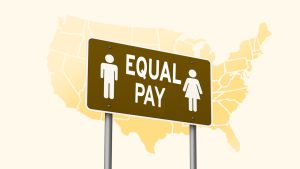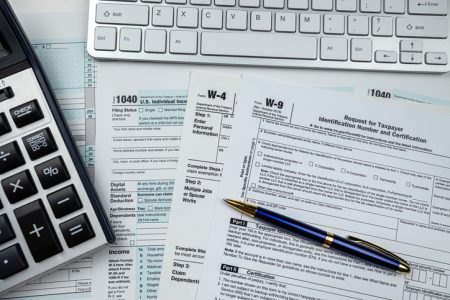Washington State imposes a 7% capital gains tax on the sale of certain long-term assets, including stocks and business interests, above an annual exemption threshold. Although the tax does not apply to all investments, many residents still seek legal strategies to avoid the Washington State capital gains tax. These can include strategies like asset relocation, timing of sales or using tax-advantaged accounts. Knowing how to avoid Washington state capital gains tax can reduce your tax liability, leaving you more room to expand your investment holdings.
Are you currently using any strategies to reduce or defer capital gains taxes on appreciated investments? Connect with a financial advisor to see if you could be doing more to optimize your portfolio.
How Washington State Taxes Capital Gains
Capital Gains Tax Rate in Washington State
The tax rate is a flat 7% on long-term capital gains exceeding an annual exemption amount. This is adjusted for inflation each year. In 2024, the exemption was $270,000 per individual or married couple filing jointly. Any long-term capital gains above that threshold are subject to the full 7% rate, regardless of income level. The tax applies only after other allowable deductions and exemptions are accounted for.
In April 2025, the Washington State Legislature passed Senate Bill 5813 and House Bill 2082. This introduced a 2.9% surtax on annual long-term capital gains exceeding $1 million. This new surtax is in addition to the existing 7% tax on gains over the inflation-adjusted exemption. The combined effect raises the effective tax rate to 9.9% on gains above $1 million.
Are Any Capital Gains Exempt?
Several categories of gains are exempt from Washington’s capital gains tax. These include the sale of several types of assets.
- Real estate: Sales of real property are exempt.
- Privately held entity interests: Gains from selling interests in a privately held entity are exempt to the extent that the gain is directly attributable to real estate owned directly by the entity.
- Retirement accounts: Assets held in certain retirement accounts, including 401(k)s, IRAs and Roth IRAs, are exempt.
- Condemnation: Assets sold or exchanged under threat of condemnation are exempt.
- Livestock: Sales of cattle, horses or breeding livestock used in farming or ranching are exempt.
- Depreciable business assets: Assets used in a trade or business that are depreciable under IRC Section 167(a)(1) or qualify for expensing under IRC Section 179 are exempt.
- Timber and timberlands: Sales of timber, timberlands and related dividends or distributions from real estate investment trusts (REITs) are exempt.
- Commercial fishing privileges: Sales of commercial fishing privileges are exempt.
- Auto dealership goodwill: Goodwill received from the sale of a franchised auto dealership is exempt.
How to Avoid Washington State Capital Gains Tax

Several legal strategies may help Washington residents avoid or reduce their state capital gains tax liability. Each approach comes with its requirements and limitations.
1. Asset Relocation
One method involves holding assets in legal entities or structures located outside Washington.
Real-life example: If a business is incorporated and operates primarily in another state, the gain from selling that interest may not be subject to Washington’s tax.
This depends on the location of business activity and where the income is earned.
2. Use Tax-Advantaged Accounts
Gains within tax-deferred or tax-exempt accounts—like 401(k)s, IRAs and health savings accounts (HSAs)—are not subject to Washington’s capital gains tax. Selling investments within these accounts does not trigger a taxable event under state law. Therefore, it offers a way to grow and liquidate assets without incurring state-level capital gains tax.
Real-life example: Someone who invests in mutual funds through a Roth IRA can sell those holdings after they have appreciated without owing Washington capital gains tax.
This is because distributions from Roth IRAs are generally tax-free and excluded from the state’s capital gains calculation.
3. Spread Gains Over Multiple Years
Staggering asset sales across multiple tax years can help keep realized gains under the exemption threshold. This can reduce or eliminate tax liability if timed carefully.
Real-life example: If an individual plans to sell $500,000 in stock with long-term gains, selling half in December and the other half in January of the following year.
This could keep each year’s realized gain under the taxable limit, thereby avoiding the 7% state tax.
4. Change Residency
Establishing residency in a no-income-tax state can exempt future capital gains from Washington’s tax. However, the move must be legitimate and well-documented.
Real-life example: Someone planning to sell a business interest valued at $2 million might choose to relocate to Texas before closing the sale.
To make the change stick, they would need to move their primary home, update their voter registration and driver’s license. They also must shift their financial and personal ties to the new state. Without these steps, Washington may still consider them a resident for tax purposes.
Bottom Line

Washington’s capital gains tax leaves room for strategic decision-making, especially for those with large, appreciated assets. Between planning the timing of a sale, choosing how and where assets are held and reevaluating residency, the structure of a transaction can shape whether gains are taxed or exempt. Understanding how the tax applies—and when it does not—offers flexibility for those willing to take a closer look at how their assets are managed.
Tips
- A financial advisor can help you understand your tax liability and how to prepare for future filings with your entire financial picture. Finding a financial advisor doesn’t have to be hard. SmartAsset’s free tool matches you with vetted financial advisors who serve your area, and you can have a free introductory call with your advisor matches to decide which one you feel is right for you. If you’re ready to find an advisor who can help you achieve your financial goals, get started now.
- Consider using an income tax calculator if you want to have a better understanding of your own future tax liability.
Photo credit: ©iStock.com/South_agency, ©iStock.com/nortonrsx, ©iStock.com/FG Trade
Read the full article here









